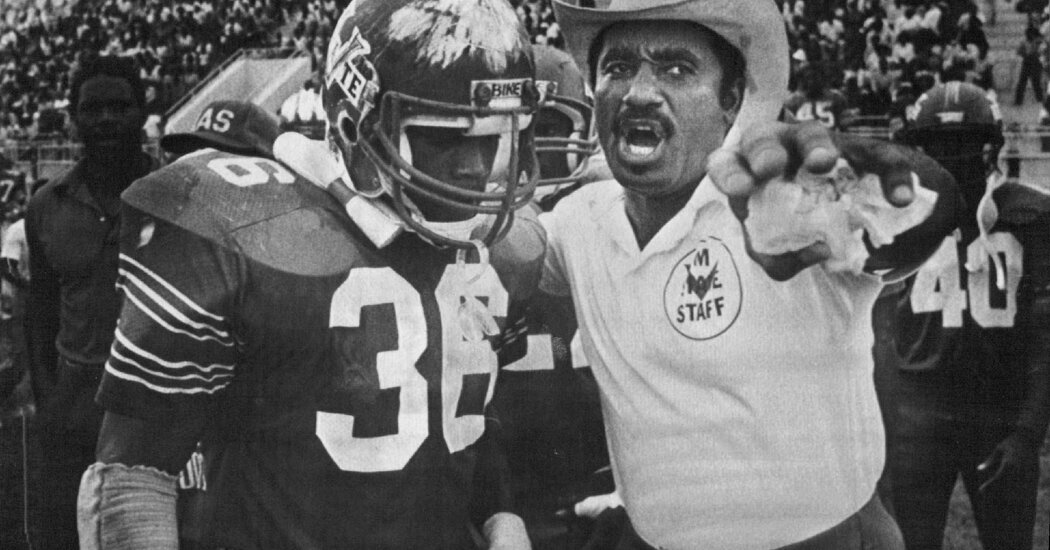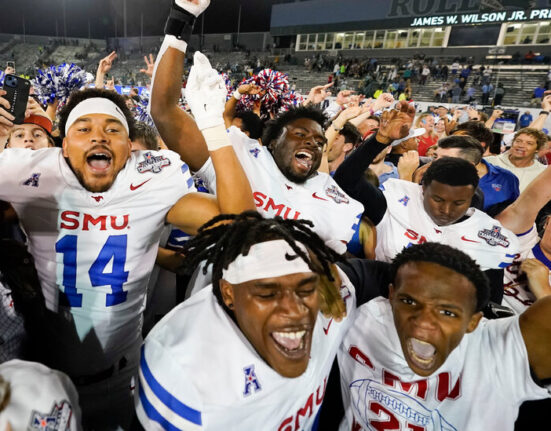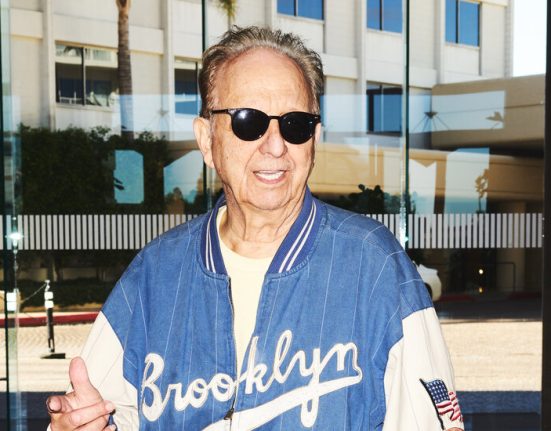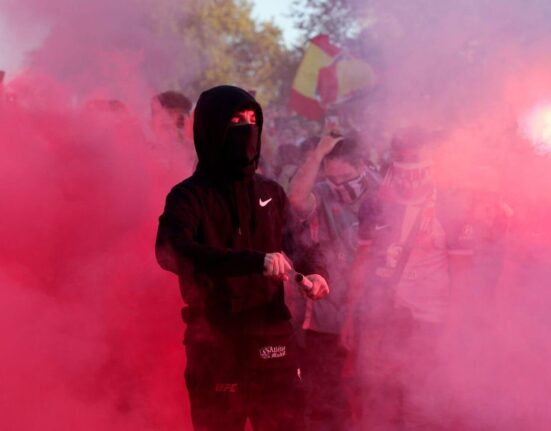Archie Cooley, the exuberant architect of a passing-crazy offense at Mississippi Valley State University in the 1980s that featured the wide receiver Jerry Rice, a future Pro Football Hall of Famer, died on April 18 in Fort Worth. He was 85.
His son, Dwight, said that his father died in a hospital but that he did not yet know the cause.
Cooley — whom a sportswriter nicknamed the Gunslinger for the cowboy hats he wore and the offense he masterminded — was hired in 1980 as the head coach at Mississippi Valley State, a historically Black school in tiny Itta Bena. But it was not until the 1984 season that what he called his “Satellite Express” offense exploded.
With Willie Totten at quarterback, the Delta Devils lined up receivers in various configurations — among them double slots, five wideouts and all receivers on one side of the field — that dared defenses to catch up to Rice and his fellow receivers.
“We feel we have the best receivers in college football,” Cooley told The New York Times early in the 1984 season. “People aren’t going to be able to double-team Rice near as much this season.”
Cooley denied that he was running up the scores; it was just, he said, that his players, whether they were starters or reserves, were highly talented.
“If we’re talking about records,” he told The Times, “I could have left people in there and set records that would never be broken.”
It was a prelude to a spectacular offensive season, in which Mississippi Valley set N.C.A.A. Division I-AA (now the Football Championship Subdivision) records for, among other categories, points per game (60.9) and yards per game (640.1). Totten averaged a record 455.7 yards a game, and Rice set a record by averaging 168.2 receiving yards.
Totten and Rice connected on 27 touchdowns that season, a record for the most between one quarterback and one receiver. Rice caught 102 passes in 1983 and followed that in 1984 with 103. He was drafted by the San Francisco 49ers in 1985.
Writing on the social media platform X after Cooley’s death, Rice called him “a great friend, coach, mentor and father figure, just like Bill Walsh,” his coach with the 49ers.
The Delta Devils finished the regular season at 9-1 but were trounced by Louisiana Tech, 66-19, in the opening round of the division playoffs.
“They whipped us good,” Cooley said afterward, “like we usually do to people.”
Before the 1985 season, there were reports that Cooley would be the subject of a CBS television movie, with Fred Williamson, the Kansas City Chiefs defensive back turned actor, in the lead role.
The film was never made. But when it was still a possibility, Cooley told The Clarion-Ledger of Jackson, Miss.: “Maybe it’s the way I carry myself. They say I’m flamboyant, outspoken and all that junk. If they spend millions on a movie, I have to be something.”
Archie Lee Cooley Jr. was born on March 18, 1939, in Sumrall, Miss., and grew up in a government housing project in Laurel, about 40 miles away, with his father; his mother, Bernice; and six siblings. His father worked at a Masonite factory, and his mother worked in an elementary-school cafeteria.
“We were fortunate people,” Cooley told The Clarion-Ledger. “In the projects you had a refrigerator, a stove, a bathroom with a shower.”
At Jackson State University, from which he graduated with a bachelor’s degree in 1962, he played center and linebacker. After serving in the Army, he started his coaching career at a high school in Heidelberg, Miss., working with the football and girls’ basketball teams. In 1971 he was hired as a defensive coach at Alcorn State University, and in 1974 he joined Tennessee State’s defensive staff.
He coached at Mississippi Valley for seven seasons. After ending his tenure with a 4-4-1 record in the 1986 season, he resigned to take the head coaching job at the University of Arkansas at Pine Bluff.
After his best season there, in 1990, when the Golden Lions were 9-1, Cooley resigned as coach and athletic director when an investigation found that the football team had committed more than 40 rules violations, including player eligibility infractions. Cooley had stepped away from coaching for several games during the investigation.
The team received the so-called death penalty: It was suspended from playing for two years by the National Association of Intercollegiate Athletics. The ban was later cut to one year.
Cooley denied the allegations against him and defended his stewardship of the football program to the school’s student newspaper.
“When I arrived in January 1987, Archie Cooley promised the university four things,” he said in 1991, using the third person as he sometimes did. “One, to make the university nationally known; two, to put more emphasis on education; three, to bring more revenue to the school; and four, to have players drafted in the N.F.L. And I feel I’ve reached my goals.”
Cooley resurfaced in 1992 as the offensive coordinator at Southern University and A&M College in Baton Rouge, La., and the next year as the head coach of Norfolk State University in Virginia. But he left after leading the team to a 3-7-1 record in his only season, saying he was exhausted.
He later worked as the offensive coordinator at Texas Southern University in Houston and Carter-Riverside High School in Fort Worth, before taking his final head coaching job in 2000 at Paul Quinn College in Dallas. He stayed until 2006, the final year of the team’s existence before the school disbanded it for financial reasons.
Like his other stops as a head coach, Quinn was a historically Black college.
In addition to his son, Cooley is survived by his wife, Georgia (Reed) Cooley; his daughters, Lisa Cooley Thomas and Trayce Jasper-Monagan; six grandchildren; many great-grandchildren; his sisters, Betty McCarthy, Lois Ellis and Ruth Harris; and his brothers, Richard and Larry.
One of Cooley’s proudest moments was Mississippi Valley’s 49-32 victory over his alma mater, Jackson State, during the 1984 season — its first over its rival in 30 years. As the game ended, he joyfully paraded along the sideline, waving a school banner.
“Jackson State said they had to score 30 points to win,” he said after the game. “They had to score 50, because we scored 49. I’m going to talk now ’cause they’ve got to live with it for a year.”













